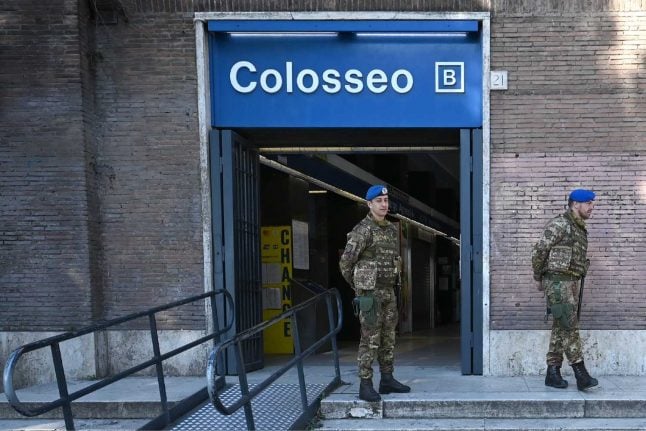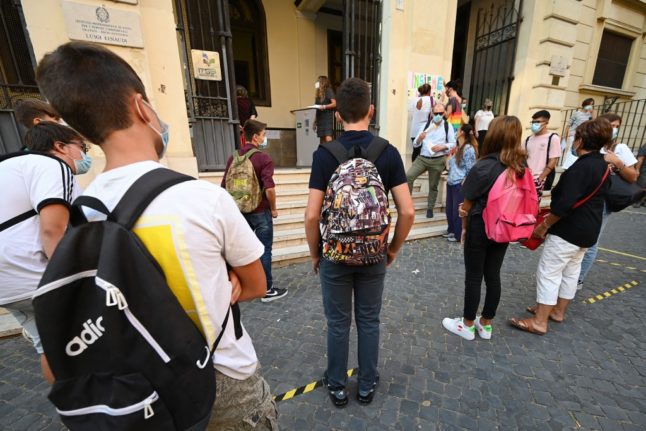Life in Italy seemed normal then — cafes and bars were full, tourist hotspots were packed, and political life was as dramatic as ever.
Italian streets are now deserted and politicians preoccupied as the country struggles to contain the worst global pandemic in almost a century.
Italy's death toll is the highest in the world after overtaking China's, where the outbreak first emerged late last year.
The retired builder's death near Padua was accompanied by a steady uptick in cases, prompting the government to isolate a cluster of towns in the area.
“Everything is under control,” Prime Minister Giuseppe Conte told the country after that first lockdown.
He was hoping to stem alarm over the creeping spread of the new virus on Italian soil.
His confidence proved premature. Now, more than 4,800 people have died of the coronavirus in the Mediterranean country and over 53,000 are infected, spurring a public health crisis that is badly straining Italy's health care system.
'You don't have enough measures'
Few in Italy realised four weeks ago that the death of the builder, Adriano Trevisan, was a turning point for a country now struggling with hundreds of new deaths each day and steadily mounting infections.
On the same day that Trevisan died in a hospital in Schiavonia, Naples beat Brescia in football, while in Milan, Versace presented a mixed gender collection at Fashion Week.
Newspapers speculated that Conte's coalition government might not hold, as authorities prepared a constitutional referendum over the number of deputies and senators in Italy's parliament.
In Rome, streets were jammed with traffic, tourists roamed the Forum and threw coins into Trevi Fountain, coffee shops and pizzerias were bustling, and locals continued to complain about garbage overflowing trash bins.
Now, streets throughout Italy are virtually empty, traffic is gone, most businesses are closed and Italy's 60 million inhabitants have been ordered to stay inside.
But even that might not be enough.
Local and regional leaders in the north, the virus' epicenter, have urged Conte to call in the army, saying the disease will continue to spread unless more people hunker down.
And health experts from China's Red Cross who are helping hospitals in the hard-hit northern region of Lombardy said much more has to be done.
“You have to shut down all economic activity, everyone has to stay at home,” Sun Shuopeng, the group's vice president, said this week.
“You don't have harsh enough measures here,” he warned.
'This is a pandemic!'
They are not alone in calling for more discipline. Authorities in the country's south, a poorer area with a weaker health care system, have sent impassioned and angry pleas on social media, imploring people to stay home.
The mayor of the Sicilian town of Delia, Gianfilippo Bancheri, raged at “idiots” who continued to socialise with neighbours, enjoy barbecues, or go out daily for food or cigarettes, while complaining of being “stressed out” by home confinement.
“When someone tells me, 'Oh mayor, you're not supposed to alarm people', what do you mean don't alarm people! This is a pandemic, it's not an epidemic, it's a pandemic and we're not supposed to alarm people?” he yells in a video posted on Facebook.
“When can we alarm people if not for a pandemic, excuse me!”
On Saturday, the head of Brescia hospital's intensive care unit, Giuseppe Natalini, said Italians had better pay heed. Brescia, 100 kilometers (60 miles) east of Milan, has 4,648 infections, the most in Italy after Bergamo.
“Don't underestimate the restrictions being ordered,” Natalini told Rai News24.
Infections continue to climb and health experts warn the peak has not yet been reached. Hospitals like Brescia's are at a breaking point. Doctors, nurses, and priests giving last rites have died from the virus, and every day brings grim news of new cases and deaths.
In two Vatican city convents, 59 nuns were found to be infected, the daily Il Messagero reported on Saturday. But amid a sea of dire news, there was a bright spot this week.
The minister for regions, Francesco Boccia, said a call for volunteer doctors, nurses and other specialists for a 300-person medical task force to help the worst-hit hospitals had already attracted 1,500 people.



 Please whitelist us to continue reading.
Please whitelist us to continue reading.
Member comments